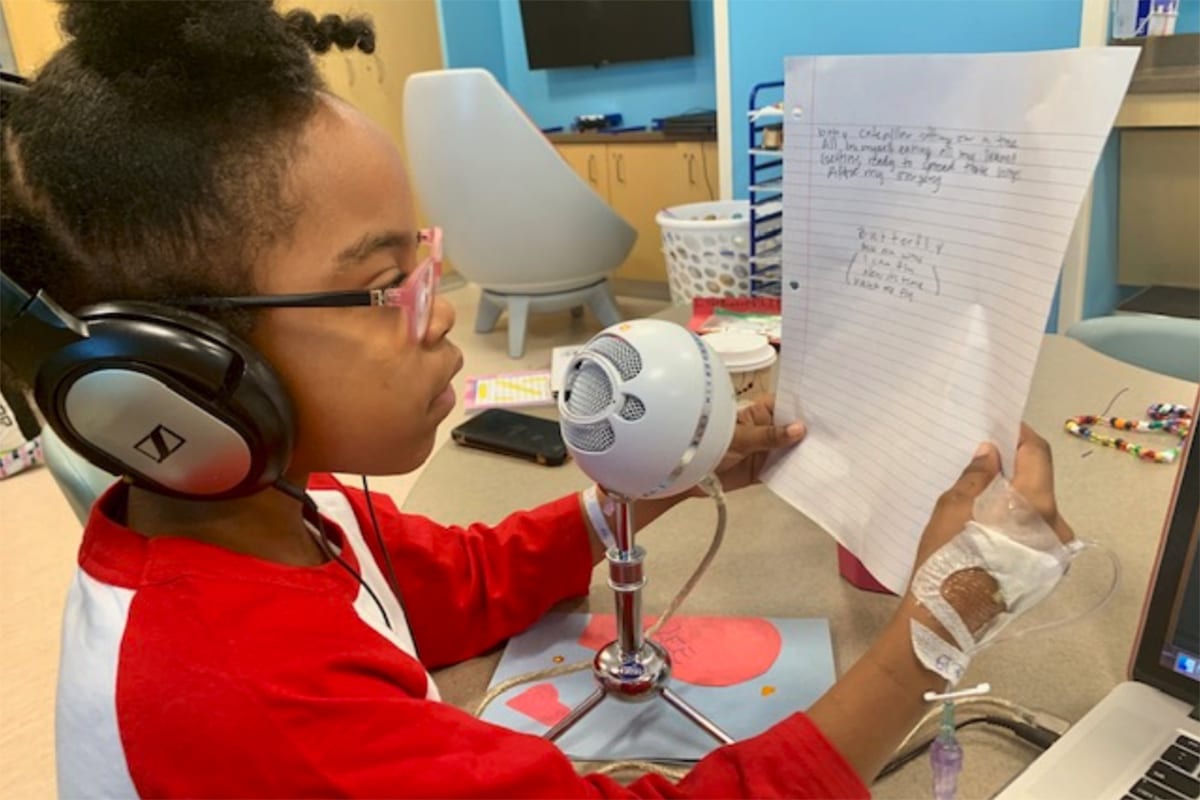You may know people who have struggled with sickle cell anemia in their family. If so, you know how difficult that can be. Kids Rock Cancer is an innovative program developed and managed by Maryville University that helps children and their families cope with the difficulties of a sickle cell or cancer diagnosis.
“My son had surgery two years ago on his tonsils and adenoids, and he has hemoglobin SC, which can be a mild form of sickle cell,” said Karlla Dozier, senior compliance officer and Title IX coordinator at Maryville University.
“He was required to have surgery at Cardinal Glennon Hospital, where his sickle cell team could oversee the operation, in-house stay and recovery. While in the hospital, he was visited by the music therapy team that works with Kids Rock Cancer. My son was unable to sing so the team worked with him to write lyrics to a song called ‘Super Cole.’ My son still has his special Super Cole poster on his door at home.”
Sickle cell anemia is an inherited blood condition that is more common in certain ethnic groups, including persons of African, Hispanic, Middle Eastern, Mediterranean, Indian and Asian descent. The sickle cell gene can be carried by both dark- and light-skinned people originally from a variety of regions around the world. In the U.S., all hospitals provide a newborn screening. If one parent is a carrier, the baby may have the trait. If both parents have the trait, the baby may have the disease. About 2,000 babies in the U.S. are diagnosed annually with the disease.
It hurts! Health problems are caused by irregularly shaped red blood cells that can slow or block blood flow and oxygen in the body. Without sufficient blood flow, a person may experience pain and extreme discomfort in their chest, abdomen, joints, and bones, and is more prone to infections. Treatment helps to relieve pain and prevent other issues but there is typically no cure.
Enter Kids Rock Cancer. Telling the story – what a person is experiencing and how it feels – has been proven to be therapeutic. Putting those thoughts and words to music adds an entirely different level of expression that is often joyful. Since 2009, more than 1,700 children and families have participated in the Maryville University program and discovered the power of music to explain how they feel.
Here’s how it works: A Kids Rock Cancer board-certified music therapist meets with the child and family for one or two sessions, typically around two hours. The therapist creates a safe space, working together to identify ideas and themes that can be turned into lyrics, and then they create an original tune. The child sings the special melody into a microphone and stars in the song they have written, with background instrumentation provided by guitar, keyboard and computer software all independently chosen by the child. When finished, the child receives this CD recording as a cherished legacy to share with family and friends.
The therapeutic songwriting and thoughtful recording process provides a positive distraction from physical and emotional pain while releasing a sense of accomplishment and pride, and feelings of happiness and optimism. Kids Rock Cancer helps children, teens, young adults and siblings (ages five and up) affected by cancer/blood disorders at St. Louis Children’s hospitals, special camps and other locations throughout the area.
This story originally appeared in the St. Louis American.
